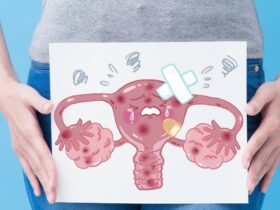United States: In the latest finding, women who are approaching menopause are said to be at a higher risk of depression.
During the transition period of reaching menopause, around 40 percent of the women have the possibility to go through depression when compared to premenopausal women, as per the pooled data collected from seven prior studies. The studies had 9,100 women from across the world.
Dr. Roopal Desai, the senior researcher and a clinical fellow in psychology with University College London, said that the results reveal that women who are going towards menopause “are significantly more likely to experience depression than either before or after this stage,” as US News reported.
Desai said, “Our findings emphasize the importance of acknowledging that women in this life stage are more vulnerable to experiencing depression,” and, “It also underlines the need to provide support and screening for women to help address their mental health needs effectively.”

More about the transition period
This transition period, the period before menopause properly called as perimenopause, which usually lasts from 3-5 years before the onset of menopause, as researchers noted in their background information.
In the course of this change process, the ovaries will produce fewer female hormones, and the fluctuation of the hormone levels can result in mood changes along with irregular menstrual cycles and other symptoms, scientists say.
The menopausal transition can persist for up to one year after the last period, and in most cases will comprise a four-to-a-eight-year process, the researchers have observed.
How was the research conducted?
The women participated in research from Australia, Canada, China, the Netherlands, and Switzerland, researchers observed. The severity of symptoms of menopause was defined through using standardized questionnaires.
These data, published on April 30 in the Journal of Affective Disorders, were from different parts of the world and reflected that the journey of women passing menopause is the same despite the countries they come from, the researchers asserted.
Yasmeen Badawy, the lead researcher and a master’s student at University College London, said, “These findings cannot be attributed to cultural factors or lifestyle changes alone, which have been sometimes used to explain the depressive symptoms that women experience during perimenopause,” as US News reported.
According to Aimee Spector, a researcher and a professor of clinical psychology of aging at University College London, “Women spend years of their lives dealing with menopausal symptoms that can have a huge impact on their well-being and quality of life.”
Spector added, “Our findings show just how significantly the mental health of perimenopausal women can suffer during this time,” and, “We need greater awareness and support to ensure they receive appropriate help and care both medically, in the workplace and at home.”











Leave a Reply